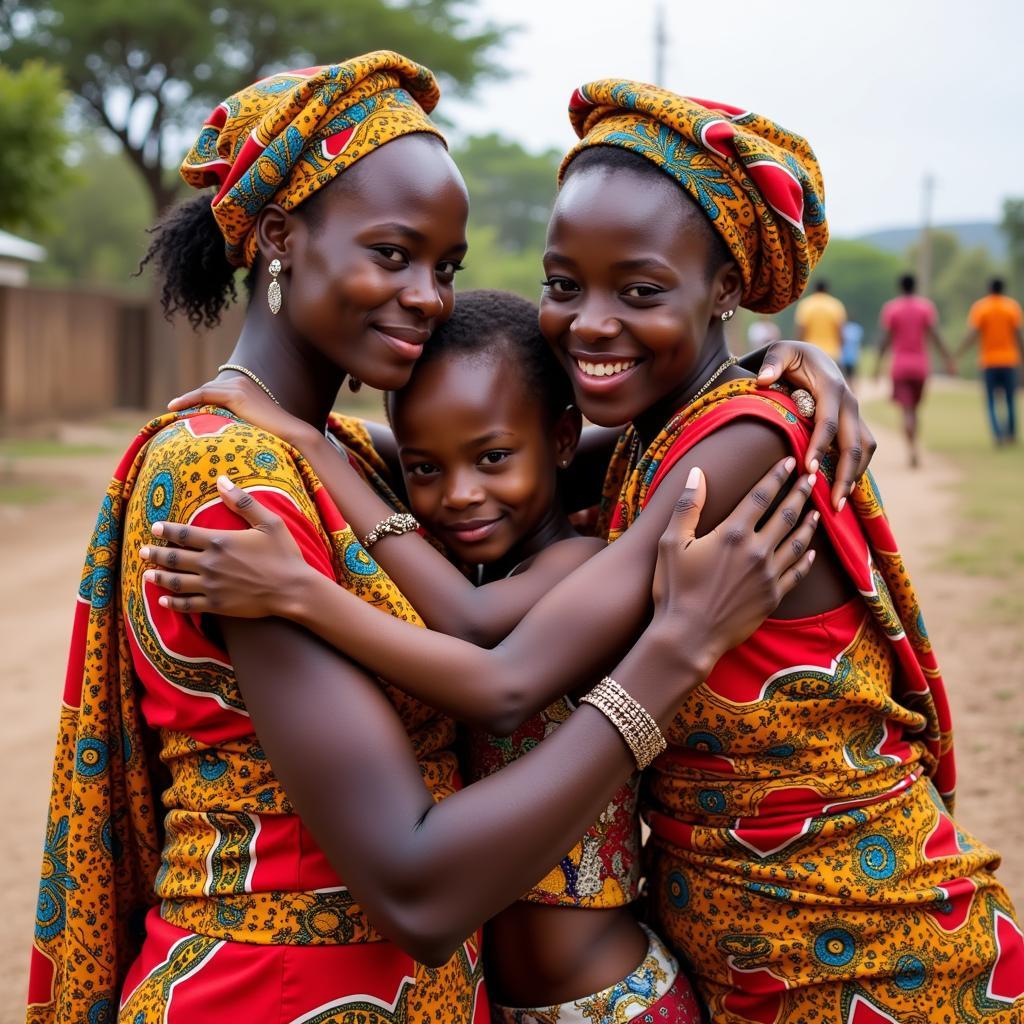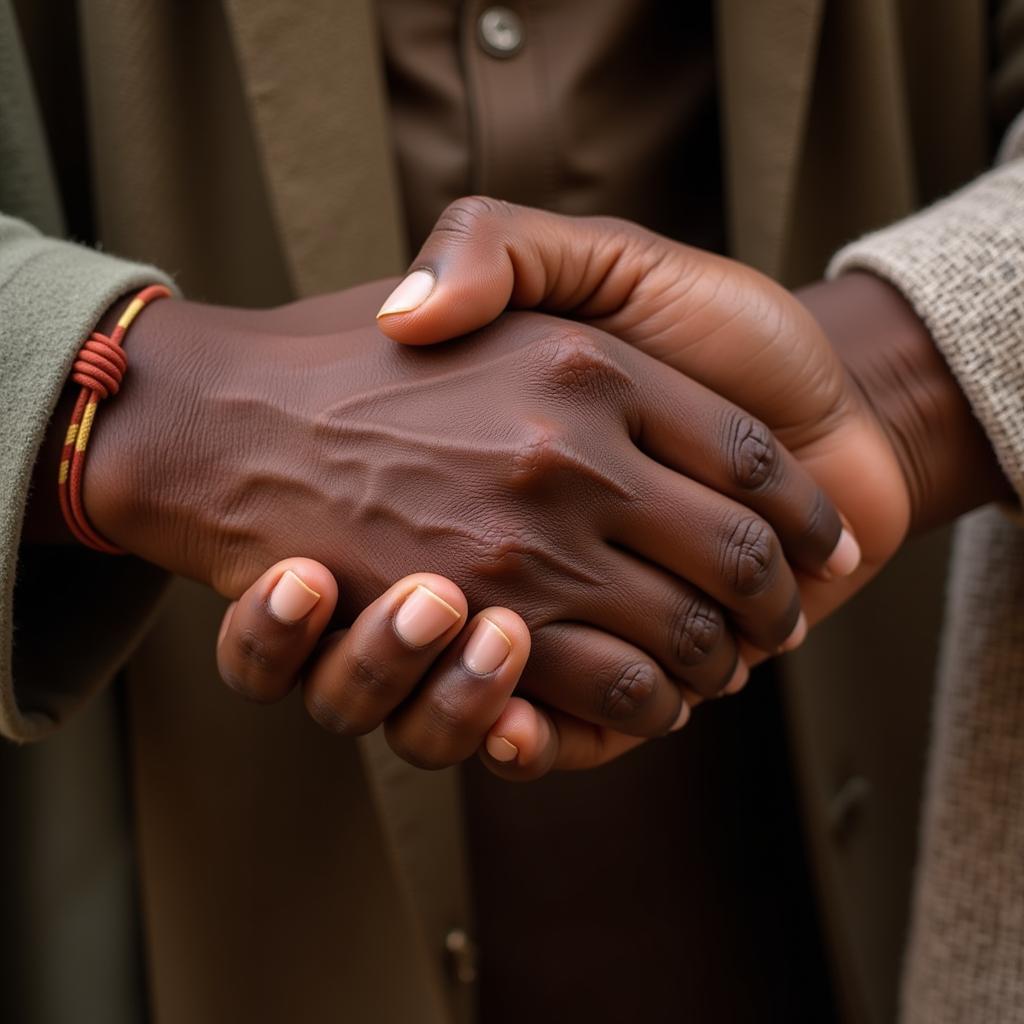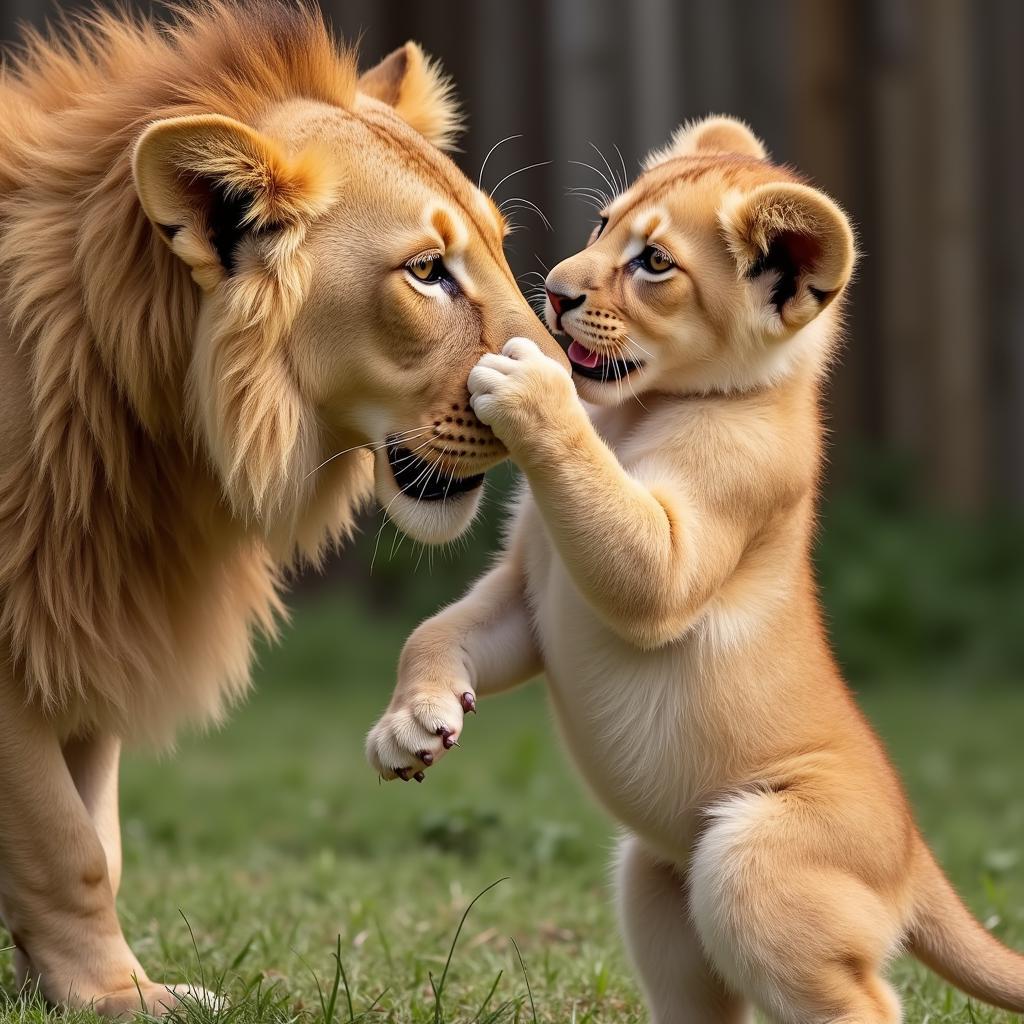A Journey Through African Greetings: More Than Just “Hello”
In many cultures, greetings are a simple formality, a quick exchange before getting down to business. However, in Africa, greetings are anything but perfunctory. They are an intricate tapestry woven from respect, warmth, and genuine interest in the well-being of the other person. To truly understand the heart of Africa, one must first understand the language of its greetings.
The Significance of Greetings in African Cultures
African greetings go beyond a simple “hello” or “good morning.” They are a powerful social tool, reflecting deep-seated cultural values and traditions that have been passed down through generations. These greetings often involve inquiries about family, health, and well-being, showcasing the importance of community and interconnectedness in African societies.
 Family greeting in Kenya
Family greeting in Kenya
Beyond Words: The Language of Gestures
While verbal expressions are crucial, African greetings are often accompanied by a rich vocabulary of gestures and body language. From handshakes to bows, each movement carries its own significance, adding another layer of meaning to the interaction. For instance, in some cultures, a handshake may involve a specific grip or the use of both hands to convey respect for elders or authority figures.
 Traditional East African handshake
Traditional East African handshake
A Diverse Continent: Regional Variations in Greetings
It’s important to remember that Africa is not a monolithic entity but a continent of incredible diversity. With over 50 countries and thousands of ethnic groups, each region boasts its own unique customs and traditions, reflected in their greetings.
West African Warmth: The Power of “Akwaaba”
In Ghana, the word “Akwaaba,” meaning “welcome,” is more than just a greeting; it’s an invitation to experience the country’s renowned hospitality. It often extends beyond a simple exchange of words, involving offerings of food, drink, and genuine conversation, making visitors feel like cherished guests.
East African Respect: “Jambo” and the Art of Addressing Elders
In East African countries like Kenya and Tanzania, the Swahili greeting “Jambo” is widely used. However, addressing elders and those of higher social standing requires a more formal approach. Using titles like “Shikamoo” (respect to you) and responding with “Marahaba” (thank you) demonstrates proper etiquette and respect for hierarchy.
Navigating Cultural Nuances: Tips for Travelers
For travelers venturing to this vibrant continent, understanding the nuances of African greetings can greatly enhance their experience.
- Learn a few basic greetings: Taking the time to learn a few local greetings in the language of the region you’re visiting can go a long way in showing respect and fostering connections.
- Observe and adapt: Pay attention to how locals greet each other, particularly the use of gestures and body language. Mirroring their behavior, within reason, demonstrates cultural sensitivity.
- Ask for guidance: When in doubt, don’t hesitate to ask for guidance from locals. Most Africans appreciate the effort to learn and respect their customs.
Embracing the Spirit of Connection: African Greetings as a Bridge
African greetings are more than just words; they are a testament to the values of community, respect, and genuine human connection that lie at the heart of the continent’s diverse cultures. By embracing the spirit of these greetings, travelers can unlock a deeper understanding of Africa and its people, forging meaningful connections that transcend language barriers.

